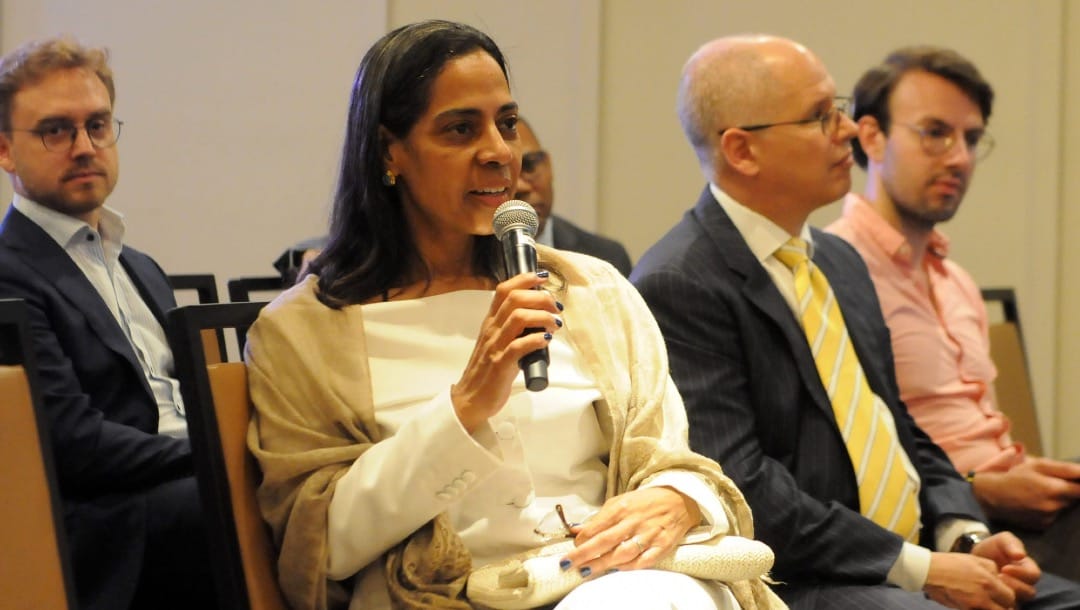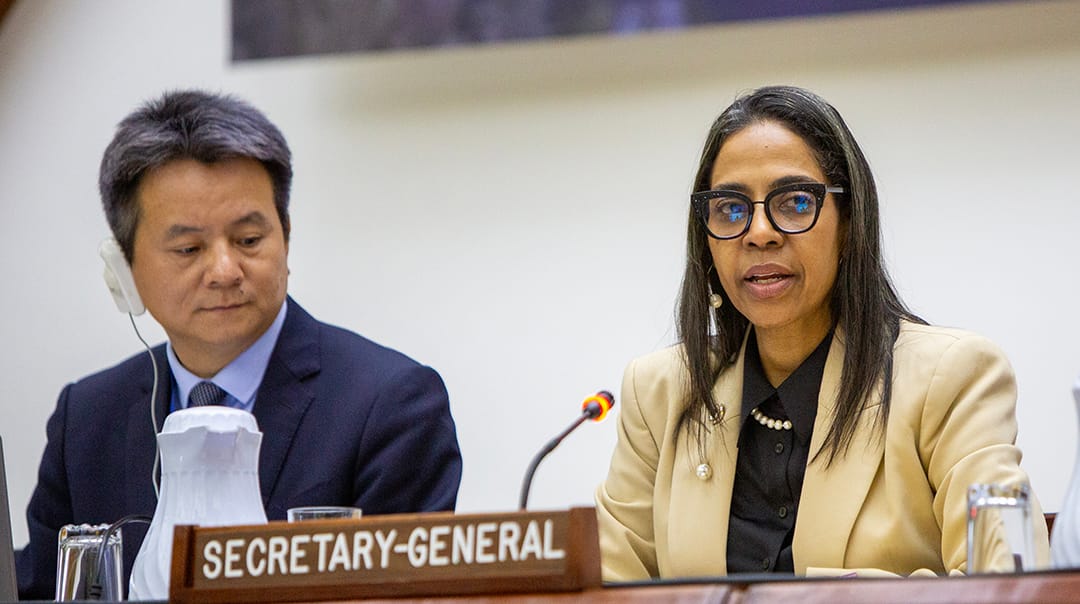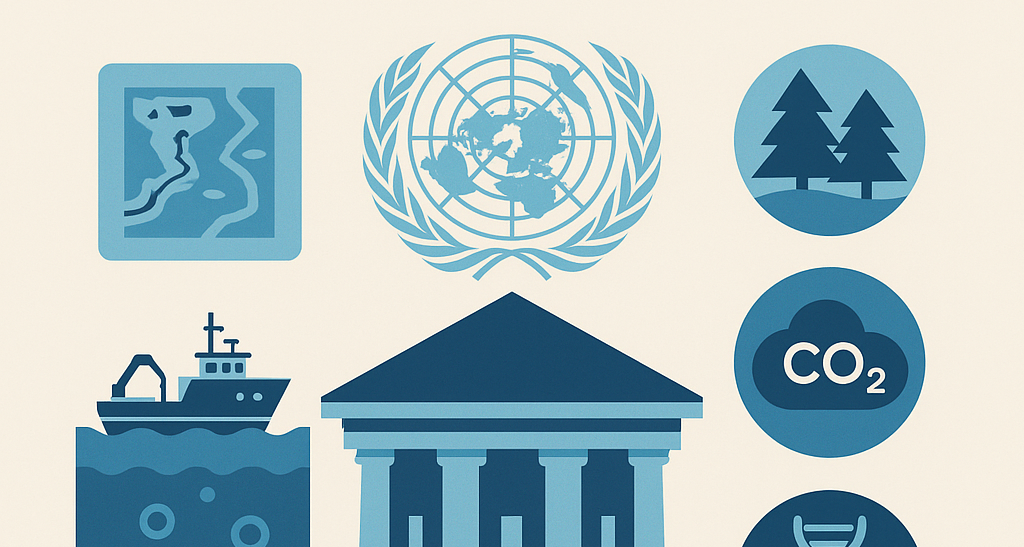ISA Secretary-General Leticia Carvalho responds to critical editorial by The Economist publication
The head of the International Seabed Authority has her job cut out for her as she prepares for a high profile session in Kingston next month, but will she be able to keep her promise on the completion of the Mining Code?

The head of the International Seabed Authority has responded to an editorial in The Economist magazine which said US president Donald Trump was "right to go after metals in the deep sea".
The article, published a week after Trump signed his now infamous executive order to bypass the ISA, had also accused the international regulator of behaving like "dogs in a manger" - an English idiom which means spitefully withholding something.
On its publication, The Metals Company CEO Gerard Barron had eagerly heralded The Economist's support.
After all, it was his company which stood to benefit from the new US regulatory route, and TMC, long critical of the ISA, has since applied for licences.
The Economist has long been a trusted source for Presidents and global leaders alike — when it speaks, people listen. The latest Leader, the paper’s second article on DSM in a week, is a standout example of quality, independent journalism.
— gerard barron (@gtbgtb) May 2, 2025
"There is a strong argument that… pic.twitter.com/JJXnV4v1mQ
The rebuttal
Today, ISA chief Leticia Carvalho responded to the publication, which publishes behind a paywall [see editorial note on this below].
In her response, Carvalho, who is approaching her first year in office, said the ISA, far from withholding, is on track to complete the deep sea mining regulations based on the road map established in 2023.
That roadmap had established the thirtieth session, set to close in July, as the deadline for adoption.
The Economist had suggested that the ISA yielded too much ground to conservationists in its deliberations over the past 14 years and accused the UN body of "behaving more like a mechanism to block all exploitation" when it should have "helped nodule collection to proceed in an orderly way".
But today, Carvalho herself an oceanographer, rejected that characterisation even while she acknowledged the long timeframe to adoption:
"I understand the frustration, but the pace simply reflects the realities of negotiating a complex issue in a highly challenging environment.
The ISA, whose membership comprises 169 states and the European Union, proceeds by consensus. That takes time. Far from being a mechanism to block progress, the organisation exists to enable activities in the deep sea responsibly, equitably and sustainably."
Plea to rejoin talks
Like she did in her initial response to the Trump executive order on 1 May, Carvalho once again implored Donald Trump's administration to rejoin the ISA's deliberations in Kingston, Jamaica.
The United States was not a signatory to the treaty that established the ISA as the deep sea mining regulator, but the super power had signed the implementing agreement in 1994, and whilst unable to get senate approval at home for a full sign on, had been participating in discussions as an observer:
"That contribution is especially important now as we strive to finalise the Mining Code"
"Mr Trump says there is no country that can accelerate the exploration and exploitation of deep-sea minerals as well as America, in terms of both technology and financing, while also following responsible practice.
If this is so, then I encourage his administration to join the ISA member states at the table and work with us within the framework of UNCLOS, rather than walk a unilateral path that risks undermining much-needed global co-operation and inadvertently jeopardising the agreements governing conduct on the high seas today."
The Economist's contradiction?
It should be noted that the ISA is not the only multilateral framework rejected by the Trump administration this year.
Since assuming office in January, Trump has pulled the United States out of the 2030 Sustainable Development Goals, World Health Organisation, and Paris Climate Agreement (again), as part of his America First approach to economic development.
The Economist has been critical of America First, arguing in March that America’s bullied allies must find their mettle.
But on 1 May, the publication said "even on environmental standards alone, there is a case to think that he is right to go after the nodules":
"There is a strong argument that deep-sea collection will be better for the environment than mining on land. It will cause the release of less carbon dioxide and it will do less harm to rare species and precious habitat. Even if you dispute this, the longer the ISA stalls over rules to govern nodule collection for the benefit of all, the higher the risk that countries follow Mr Trump’s lead and go ahead without the agency’s say-so. That could trigger an unregulated rush to exploit the very ecosystem the environmentalists seek to protect.
But in today's rebuttal, the ISA head says this would have disastrous consequences for more than deep sea mining.
Unintended consequences
Quoting the UN chief, who warned against the deep sea becoming "the wild west" at this week's United Nations Ocean Conference, Carvalho issued her own warning about the unintended consequences of a unilateral approach to the deep sea:
"Today, 95% of global internet and financial traffic depends on undersea cables. These have long been protected by multilateral frameworks that protect navigational freedoms, enforce maritime boundaries and resolve disputes. Undermining those frameworks by setting a precedent for unilateral action could have far-reaching and destabilising consequences".
And on the miners, like TMC, exploiting the new US framework, she had this to say:
"Untested and hastily approved corporate ventures backed by weak financing should not be allowed to undermine this noble mission, which will test the greatest minds in science, technology and finance".
"These are early days"
Despite her assurances about completing the Mining Code at pace, Leticia Carvalho had this to say in today's response to The Economist:
These are still early days. Current thinking is that the deep sea could supply some of the metals powering modern technological innovations, including those in the green energy transition. However, the demand for these metals is constantly evolving.
The International Energy Agency has said demand for critical minerals contained in polymetallic nodules - nickel, cobalt, lithium - is set to grow rapidly even as current markets continue to be volatile.
Conservationists say they can all be sourced terrestrially or will be phased out by new technologies, and that deep sea mining financials are overstated.
Carvalho says member states are right to proceed carefully:
"Responsible mining will require great vigilance. The seabed, where monitoring and inspection are especially complex, demands a robust and equitable regulatory regime. The draft Mining Code reflects this, with strict provisions on due diligence, science, technology, safeguards and accountability. That many member states are calling for a delay until these are in place should not be viewed as obstruction but prudence."
ISA Secretary-General Leticia Carvalho in article submitted to The Economist magazine
Still Carvalho says she appreciates the momentum injected into the discussions because of Trump's EO, as the ISA "looks to fulfil our commitments with deliberation and in accordance with the law".
The Economist had stated that Trump should return to multilateralism in Kingston if the Mining Code is completed instead of going it alone.
And on that, Carvalho was able to end her rebuttal in agreement.
As she prepares for a contentious and high profile 3oth session next month, her closing argument to the publication seemed an appeal to all the stakeholders making the trek to Kingston:
" I trust that when state parties and other stakeholders come to Kingston, Jamaica in July for the ISA Assembly, an important policymaking forum, they will articulate UNCLOS’s values with pragmatism, based on the best science available. This is a shared responsibility—to the environment, to each other and to those who will inherit the consequences of the decisions we make today. I hope that the United States will join us".
Editorial note: Deep Blue League is of the opinion that the head of a multilateral like the International Seabed Authority should aim to publish in open access spaces so every member of the global community, without restriction, may have unfettered access to her utterances. Whilst the editor understands the desire to respond to The Economist in the same space in which the original article was published, we think this should be accompanied by an open letter published to the ISA's website.
Read:


For editorial comments or questions: [email protected]


